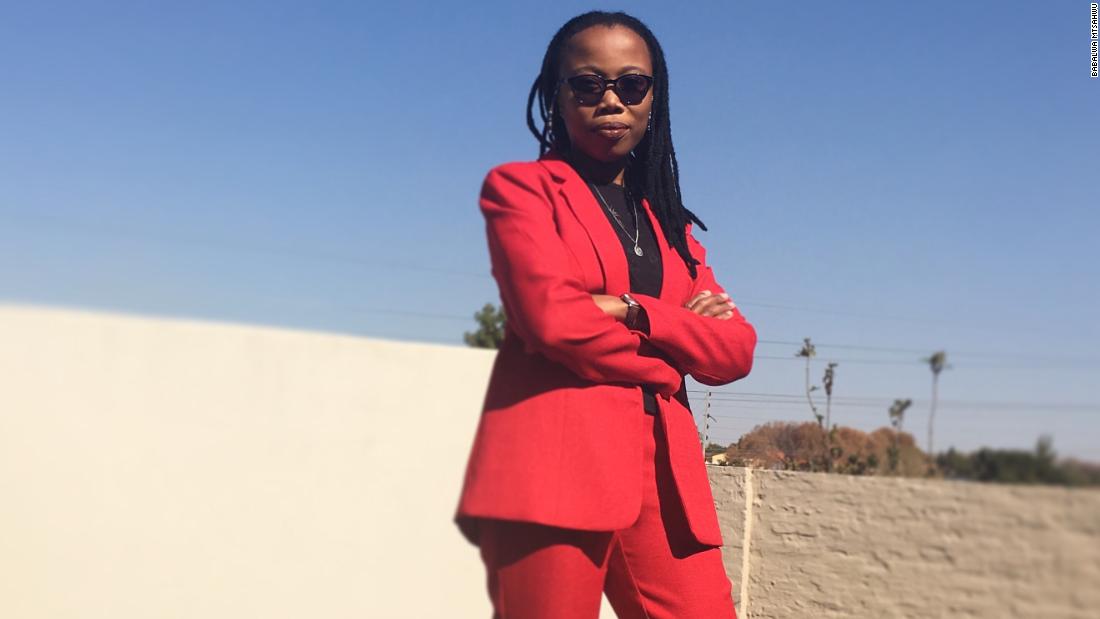Born in Mthatha, a town in the Eastern Cape province of South Africa, she says her family’s conservative nature made it difficult for her to talk to anyone about her body.
“I was aware that something was not entirely right with my body from a young age because of all the signs. But coming from a black family where we are so traditional, we never talked about sexual or reproductive health,” Mtshawu told CNN.
At the age of 25, after years of trying to figure out why she was different, she finally booked an appointment with the doctor.
“The doctors ran some tests, and that’s when I discovered that I am intersex,” she said.
What is intersex?
Like Mtshawu, an intersex person may be born appearing to be female on the outside, but having mostly male-typical anatomy on the inside.
Dr. David Segal, who specializes in the diagnosis and treatment of people with growth and development disorders in Johannesburg, says there are many possible variations of being intersex, involving genitalia, chromosome patterns, and hormones.
According to Segal, many people don’t understand intersexuality because they have not considered that anatomy and hormones do not have to be strictly male or female.
“Everybody wants to do a boy or a girl. There is no room for persons born outside this spectrum that has been created,” he told CNN.
‘Sorcery and witchcraft’
Mtshawu, now 32, says babies discovered to be intersex at birth are sometimes killed due to the traditional belief that they are bad luck.
These babies are considered a manifestation of sorcery and witchcraft.
Many intersex children are also subjected to non-consensual medical interventions.
Nthabiseng Mokoena, a human rights activist in South Africa says there is a lot of advocacy for unnecessary and coerced surgery on the genitals of intersex persons to suit social norms of what is considered male or female.
Mokoena, whose preferred pronoun is ‘they’ says some doctors prescribed surgery even though they didn’t have any health complications.
“Luckily, I had a very supportive mother, she protected me from unnecessary surgical interventions that the doctors were advocating for. She also taught me to respect and accept diversity at a young age,” they told CNN.
Misconceptions
Now a lecturer at Stellenbosch University in Capetown, Mtshawu says there are many misconceptions about intersexuality.
According to Mtshawu, educating students about intersexuality will reduce the existing misconceptions around it.
“The curriculum is slowly changing in South Africa, and I think it will be easy for them to teach intersex because it is just plain biology. This is a natural phenomenon, like someone being born without an arm or having an extra finger,” she told CNN.
Unfair regulations
Beyond misconceptions, there is also discrimination of persons with sex variations in schools, healthcare facilities, and competitive sports.
Legal recognition
Despite discrimination and abuse, it’s not all gloom and doom. South Africa has enacted laws to protect the rights of intersex persons.
Other countries like Kenya have also taken the lead in including persons with sex variations.
Intersex persons are discriminated against because society does not have enough public information on intersexuality, says, Dr. David Segal.
“We are used to contrast. It’s either one is short or tall, skinny or fat, male or female, there’s no in-between and no consideration for other options. There is no biological understanding of what’s going on. If people understood it they wouldn’t discriminate,” he said.
Mtshawu says she is gradually embracing her identity but sometimes wishes she did not have to deal with the reality of being intersex.
“Right now I am embracing who I am, but it is not something I would have sought out given the chance,” she said.
Source: CNN Africa



